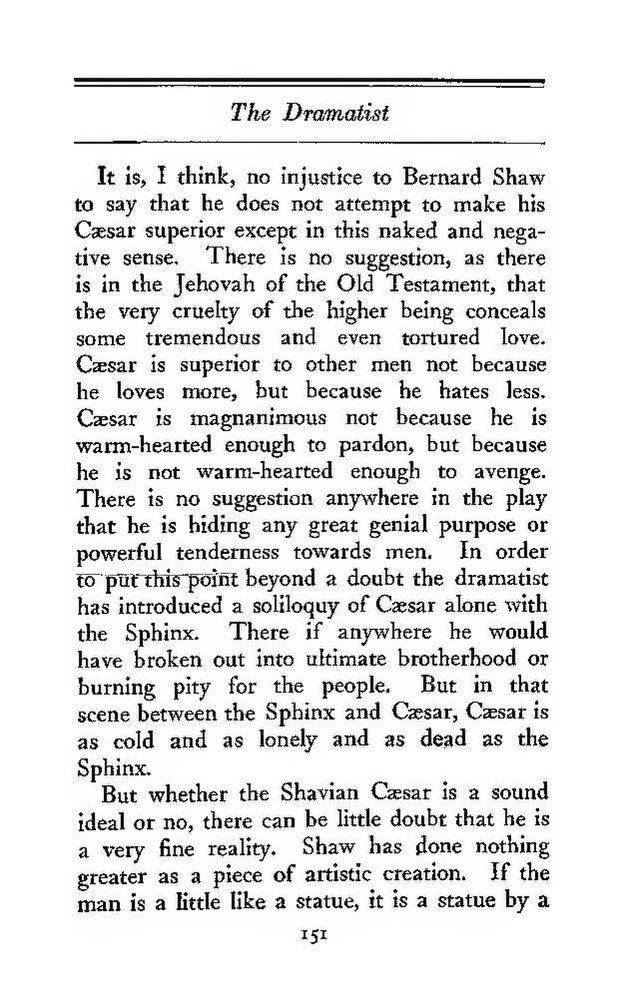It is, I think, no injustice to Bernard Shaw to say that he does not attempt to make his Cæsar superior except in this naked and negative sense. There is no suggestion, as there is in the Jehovah of the Old Testament, that the very cruelty of the higher being conceals some tremendous and even tortured love. Cæsar is superior to other men not because he loves more, but because he hates less. Cæsar is magnanimous not because he is warm-hearted enough to pardon, but because he is not warm-hearted enough to avenge. There is no suggestion anywhere in the play that he is hiding any great genial purpose or powerful tenderness towards men. In order to put this point beyond a doubt the dramatist has introduced a soliloquy of Cæsar alone with the Sphinx. There if anywhere he would have broken out into ultimate brotherhood or burning pity for the people. But in that scene between the Sphinx and Cæsar, Cæsar is as cold and as lonely and as dead as the Sphinx.
But whether the Shavian Cæsar is a sound ideal or no, there can be little doubt that he is a very fine reality. Shaw has done nothing greater as a piece of artistic creation. If the man is a little like a statue, it is a statue by a
151
